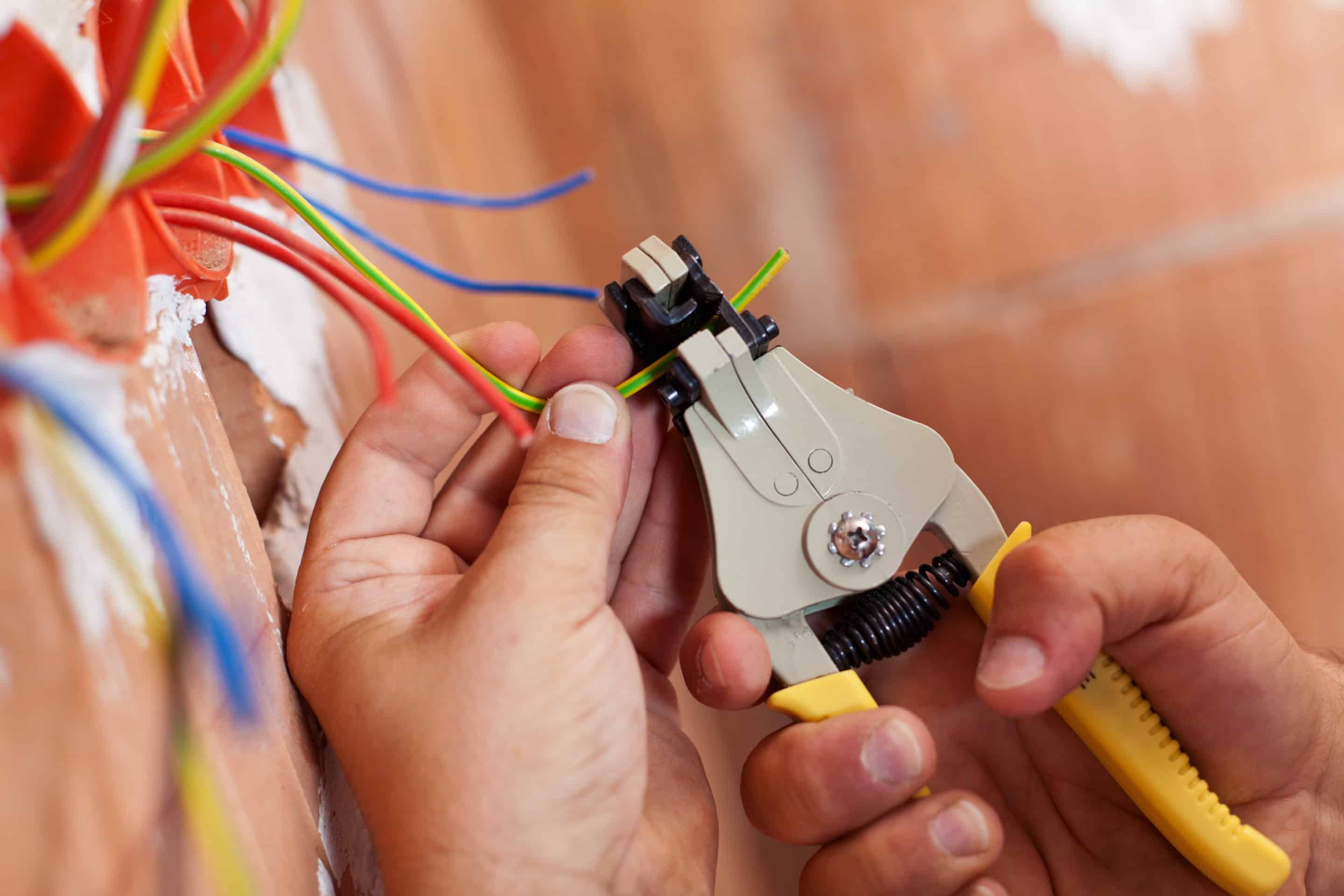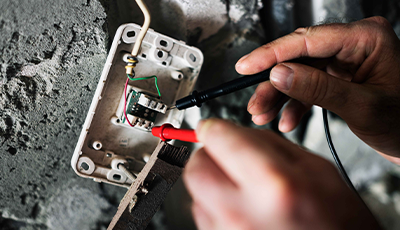Preventive maintenance guide by a ASP Level 2 Electrician
Usual Electric Problems Every House Owner Ought To Learn about
Property owners usually come across numerous electrical problems that can impact safety and security and functionality. Problems like flickering lights and tripped breaker are extra common than numerous realize. These situations can show deeper electric concerns that warrant attention. Understanding the indicators and threats connected with out-of-date wiring and dead outlets is vital. What actions can be taken to prevent these problems? Discovering these usual electrical issues could reveal essential understandings for preserving a secure home environment.

Flickering Lights: Reasons and Solutions
Why do some house owners experience flickering lights? Flickering lights can be a typical aggravation, frequently indicating underlying electrical problems. One primary cause is loose or faulty links within light fixtures or electrical wiring, which can result in periodic power supply. Additionally, making use of high-wattage home appliances on the same circuit may create voltage fluctuations, causing lowering or flickering. Another possible issue is an overloaded circuit, where a lot of tools attract power all at once, stressing the electric system. Outdated or abject circuitry can contribute to inconsistent electrical flow. Sometimes, flickering lights may signal an issue with the home's electrical panel or service line. Property owners need to address flickering lights quickly to stay clear of prospective risks. Solutions might consist of tightening up links, redistributing device lots, or speaking with a qualified electrical expert for a comprehensive assessment. Determining the origin can help assure a steady and risk-free electrical system in the home.
Tripped Circuit Breakers: What You Required to Know
Have home owners ever wondered what creates their breaker to journey suddenly? This usual concern typically occurs from an overload of electric circuits, where as well lots of devices attract power at the same time. In such instances, the breaker acts as a safety and security mechanism, interrupting the flow of electrical power to prevent getting too hot and prospective dangers. An additional frequent cause is a short circuit, which happens when an online cord get in touches with a neutral cable, developing a rise of electrical power that journeys the breaker. Ground mistakes can additionally lead to tripped breakers; these occur when an online wire touches the ground or a grounded surface, posing serious security risks. Home owners should consistently examine their usage of high-wattage appliances to avoid overwhelming circuits. In addition, comprehending the function of breaker can help them respond suitably during a journey, guaranteeing their home remains secure and well-maintained.
Outdated Wiring: Indications and Dangers
Obsolete circuitry can pose significant risks to house owners, typically going undetected till issues develop. Homes constructed prior to the 1980s may still have aluminum wiring or knob-and-tube systems, which are no much longer considered secure. Signs of obsolete wiring consist of flickering lights, regularly tripped breaker, or shedding smells near electrical outlets. These indications might recommend that the electric system is overloaded or deteriorating.Additionally, house owners might notice swelter marks around electrical outlets or switches, which can suggest getting too hot. The risk of electric fires substantially boosts with outdated wiring, as these systems were not created to manage contemporary electrical lots. House owners are urged to have their electrical wiring evaluated frequently, particularly when refurbishing or including brand-new devices. By identifying these signs early, they can prevent unsafe situations and maintain a safer living setting. Upgrading to current electrical requirements is a positive step in keeping home safety and security and efficiency.
Regularly Blown Fuses: Repairing Tips
Constant blown fuses can suggest underlying electrical issues that may originate from out-of-date electrical wiring or overloaded circuits. Homeowners experiencing this issue should initially determine the appliances connected to the affected circuit. It is recommended to prevent making use of several high-wattage gadgets concurrently, as this can lead to circuit overload. If the problem lingers, examining the fuse box for indications of wear or damage is critical; a faulty circuit box may call for replacement.Additionally, looking for loose connections within the circuit can help protect against future incidents. Home owners should likewise validate that the merges being used are of the correct amperage, as making use of an incorrect fuse can exacerbate the problem. If these fixing ideas do not fix the problem, getting in touch with a certified electrical expert is suggested to assess the electrical system even more. Resolving these issues without delay can assist mitigate threats and assure the security of the home's electric framework.
Dead Outlets: Usual Causes and Fixes
When a homeowner comes across a dead outlet, it can usually give irritation and complication. Several typical reasons may bring about this problem. One regular wrongdoer is a tripped breaker, which can be conveniently reset. Home owners must evaluate their electric panel to inspect if any kind of breakers are in the off setting. One more opportunity is a faulty outlet itself, which might need substitute. Additionally, loosened circuitry links within the outlet can interrupt power circulation, making assessment essential.Sometimes, the issue might stem from an overloaded circuit, specifically when multiple tools are attached. In such situations, rearranging the electrical lots can deal with the issue. Home owners need to also consider the age of their wiring; older systems may require updates to meet contemporary electric needs. If these steps do not remedy the situation, consulting a qualified electrical expert is recommended to ensure safety and security and correct diagnosis.
Electric Shocks: When to Be Concerned
Just how can house owners figure out whether an electric shock warrants problem? Home owners need to initially analyze the extent and context of the shock. A light static shock, commonly felt when touching metal items, is common and normally safe. However, if the shock occurs while interacting with a plugged-in home appliance or electrical outlet, it may indicate an extra significant issue.The location and regularity of the shocks are necessary. Repeated shocks from the exact same source, especially in wet locations like kitchen areas or shower rooms, could indicate faulty electrical wiring or poor grounding. House owners ought to likewise consider the experience of the shock; a jolt that triggers pain or contraction is much more worrying than a mere tingle.If there's any kind of uncertainty, it is recommended to speak with a certified electrical contractor. Ignoring potential electrical risks can bring about major safety and security risks, consisting of fire or extreme injury.
Overloaded Circuits: Prevention and Safety And Security Measures
Overloaded circuits pose substantial threats in residential settings, commonly causing electrical fires or equipment damages (Level 2 Electrician). House owners should acknowledge the indications of an overloaded circuit, such as often stumbled breakers or dimming lights. Executing precautionary security techniques can aid alleviate these hazards and guarantee a safer living setting
Identifying Overloaded Circuits
What indicators show that a circuit may be overwhelmed? House owners need to be watchful for several key indications. Frequently tripped breaker or blown fuses recommend excessive load on the circuit. Dimming or flickering lights, particularly when various other appliances are in use, can represent a poor power supply. Furthermore, electrical outlets or buttons that feel cozy to the touch might indicate getting too hot, a possible fire risk. Unusual humming noises from outlets also necessitate interest, as they can signify electric you could check here problems. Lastly, if appliances you can try this out operate inefficiently or fall short to begin, it may suggest an overloaded circuit. Identifying these signs early can help avoid serious electrical problems and advertise a safer home setting.
Preventive Safety And Security Practices
To preserve a secure and efficient electric system, house owners need to apply preventive safety methods that attend to possible circuit overloads. One effective action is to avoid connecting way too many devices to a solitary outlet, as this can go beyond the circuit's ability. Making use of power strips with integrated circuit breakers can assist distribute power securely. Property owners should additionally frequently examine cables and home appliances for damages and change any malfunctioning equipment immediately. It is vital to guarantee that breaker are operating correctly and to be familiar with the overall wattage being used in each circuit. In addition, speaking with a certified electrical contractor for periodic inspections can identify possible problems before they escalate, guaranteeing a more secure living atmosphere and lengthening the life-span of electric systems.
Often Asked Concerns
How Typically Should I Have My Electrical System Inspected?
Regular evaluations of electrical systems are recommended every 3 to 5 years. Property owners ought to consider much more regular checks if they experience concerns, undertake restorations, or reside in older buildings to ensure safety and compliance.
Can I Deal With Electric Troubles Myself or Employ a Specialist?

What Are the Indications of an Electric Fire Danger?
Indications of an electric fire risk consist of regularly stumbled breaker, flickering lights, melting odors, blemished outlets, or warm, humming cables. Property owners ought to stay watchful and look for specialist help if any of these index indicators are existing.
Exactly how Do I Know if My Home Demands an Electrical Upgrade?
To determine if a home requires an electrical upgrade, indicators include constant circuit breaker journeys, outdated electrical wiring, insufficient electrical outlets, flickering lights, and the visibility of older electric panels, showing possible security threats and ineffectiveness.
Are There Specific Safety Tips for Do It Yourself Electric Job?
When taking into consideration do it yourself electric work, one need to always switch off power, use protected devices, confirm circuit performance, adhere to regional codes, and seek advice from professionals for complex tasks to ensure safety and security and stop crashes. Another prospective problem is an overloaded circuit, where also lots of devices draw power all at once, stressing the electric system. The risk of electrical fires significantly raises with out-of-date wiring, as these systems were not made to manage contemporary electrical tons. Regular blown fuses can suggest underlying electric issues that may stem from out-of-date wiring or overloaded circuits. To maintain a secure and effective electric system, home owners should apply preventative security practices that attend to possible circuit overloads. Sydney Level 2 Electrician. Signs of an electrical fire danger include often tripped circuit breakers, flickering lights, melting smells, discolored outlets, or warm, humming cables